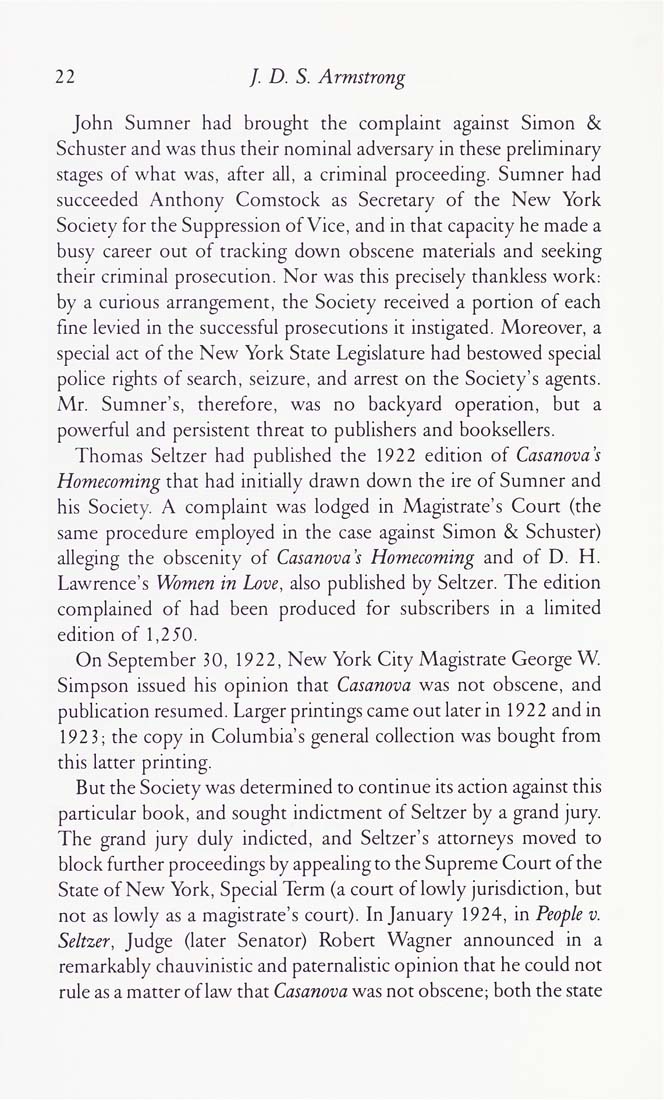Columbia Library columns (v.39(1989Nov-1990May))
(New York : Friends of the Columbia Libraries. )
|
||
|
|
|
|
| v.39,no.3(1990:May): Page 22 |

22 J. D. S. Armstrong John Sumner had brought the complaint against Simon & Schuster and was thus their nominal adversary in these preliminary stages of what was, after all, a criminal proceeding. Sumner had succeeded Anthony Comstock as Secretary of the New York Society for the Suppression of Vice, and in that capacity he made a busy career out of tracking down obscene materials and seeking their criminal prosecution. Nor was this precisely thankless work: by a curious arrangement, the Society received a portion of each fine levied in the successful prosecutions it instigated. Moreover, a special act ofthe New York State Legislature had bestowed special police rights of search, seizure, and arrest on the Society's agents. Mr. Sumner's, therefore, was no backyard operation, but a powerful and persistent threat to publishers and booksellers. Thomas Seltzer had published the 1922 edition of Casanova's Homecoming that had initially drawn down the ire of Sumner and his Society. A complaint was lodged in Magistrate's Court (the same procedure employed in the case against Simon & Schuster) alleging the obscenity of Casanova's Homecoming and of D. H. Lawrence's Women in Love, also published by Seltzer. The edition complained of had been produced for subscribers in a limited edition of 1,250. On September 30, 1922, New York City Magistrate George W. Simpson issued his opinion that Casanova was not obscene, and publication resumed. Larger printings came out later in 1922 and in 1923; the copy in Columbia's general collection was bought from this latter printing. But the Society was determined to continue its action against this particular book, and sought indictment of Seltzer by a grand jury. The grand jury duly indicted, and Seltzer's attorneys moved to block further proceedings by appealing to the Supreme Court ofthe State of New York, Special Term (a court of lowly jurisdiction, but not as lowly as a magistrate's court). In January 1924, in People v. Seltzer, Judge (later Senator) Robert Wagner announced in a remarkably chauvinistic and paternalistic opinion that he could not rule as a matter of law that Casanova was not obscene; both the state |
| v.39,no.3(1990:May): Page 22 |







